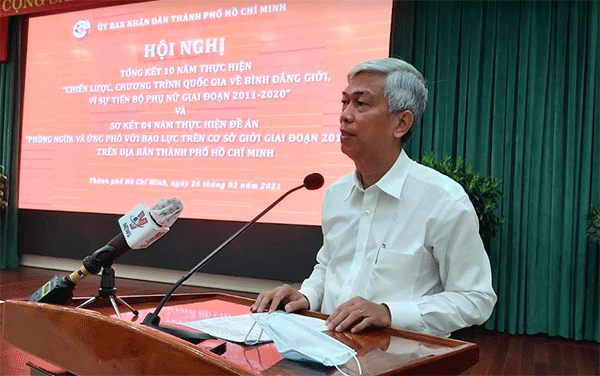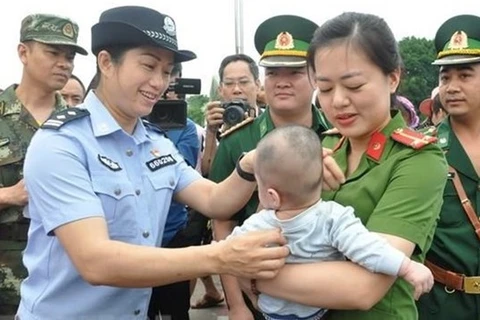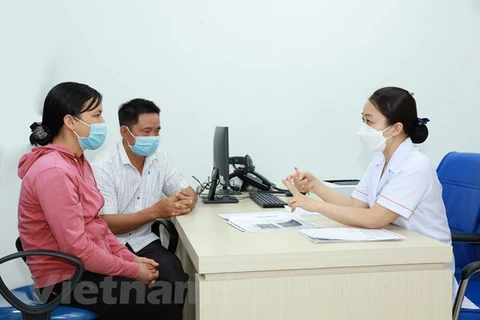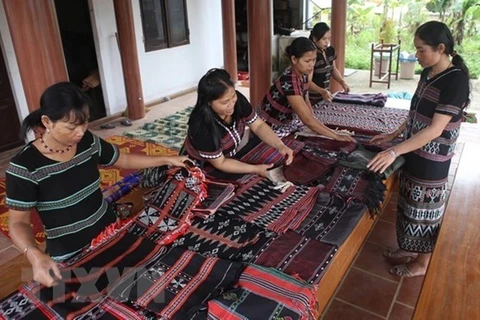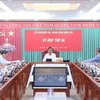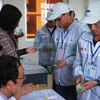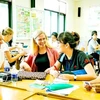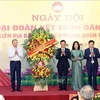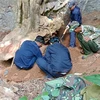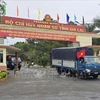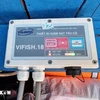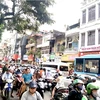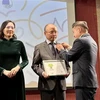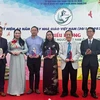Hanoi (VNA) – A platform, designed to support children and young people from ethnic minorities, was launched with an aim to helping the targeted group prevent child marriage and human trafficking in a proactive manner during a webinar on September 28.
“Em vui,” which translates as "I'm happy", can be accessed via www.emvui.vn and is also available on popular social media platforms such as Facebook, Tiktok, Zalo, Youtube, Instagram and Twitter.
The forum is designed to be a friendly, reliable and informative space where ethnic minority children and young people can learn and exchange information. It is also a platform for them to voice their concerns to policymakers, creating feedback that will allow more suitable and effective policies to be put in place.
“Em vui” is part of a project of “Enhancing awareness of ethnic minority children and young people on human trafficking and child marriage through digital technology” (EMPoWR), co-funded by the Delegation of the European Union and Plan International in Belgium.
The project is a product of collaboration between many organisations: the Institute for Social Development Studies (ISDS), Plan International in Vietnam, the Department of Children under the Ministry of Labour, Invalids and Social Affairs, and other agencies.
The programme will eventually be rolled out in 52 communes across four provinces – Ha Giang, Lai Chau, Quang Binh and Quang Tri – between 2020 to 2023.
It will primarily support children and young adults from ethnic minority groups aged between 10 to 24. The digital space will educate them on social networking and online safety skills, as well as providing information about support services relating to child marriage and human trafficking.
The head of ISDS and director of the EMPoWR project, Khuat Thu Hong, said that “Em vui” would foster a safer environment for children and young people to grow up in.
Individuals, organisations and agencies could add to the resources that would then be shared with children and young people across the country, she said.
Le Quynh Lan, an official from Plan International Vietnam, said that under the organisation’s five-year programme, it wanted to help support two million girls in Vietnam with their schooling and decision-making, to help them "shine".
The EMPoWR project, and particularly the “Em vui” digital platform, would help realise the organisation’s commitments in promoting gender equality and child protection, particularly for those from ethnic groups.
The incidence of early marriage was falling, according to findings of a survey conducted by the EMPoWR project on 1,725 ethnic minority children across 17 communes of six districts in Ha Giang, Lai Chau, Quang Binh and Quang Tri in late 2020. However, only 28 percent of the respondents said they had been provided with knowledge on child marriage.
The survey indicated that 52 percent had a correct understanding of the legal minimum age for marriage. Many respondents misunderstood the age at which men are allowed to get married, while it was more common among the surveyed girls to feel the pressure of getting married to avoid becoming a “leftover” woman.
Some 72 percent were aware of at least two consequences of child marriage, the most commonly among which were future career, study and personal health.
About 60 percent were ready to reject forced marriage and the rate is higher among girls and school-going children.
Just 3 percent of the child respondents acknowledged the risk of being trafficked and 11 percent were aware of how to prevent it from happening. Around 37 percent knew at least two helplines – 111 (national hotline for child protection) and 113 (police emergency number)./.
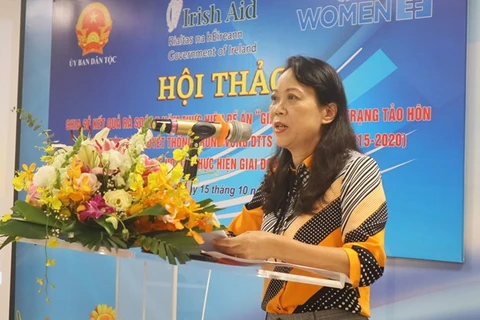
Workshop reviews project on reducing child marriage among ethnic minorities
Some 70 experts on gender equality and delegates from ethnic committees of 15 provinces and cities across the country attended a workshop on October 15 to review the first five years of a project on reducing child marriage and inter-marriage in ethnic minority areas during 2015-2025.

